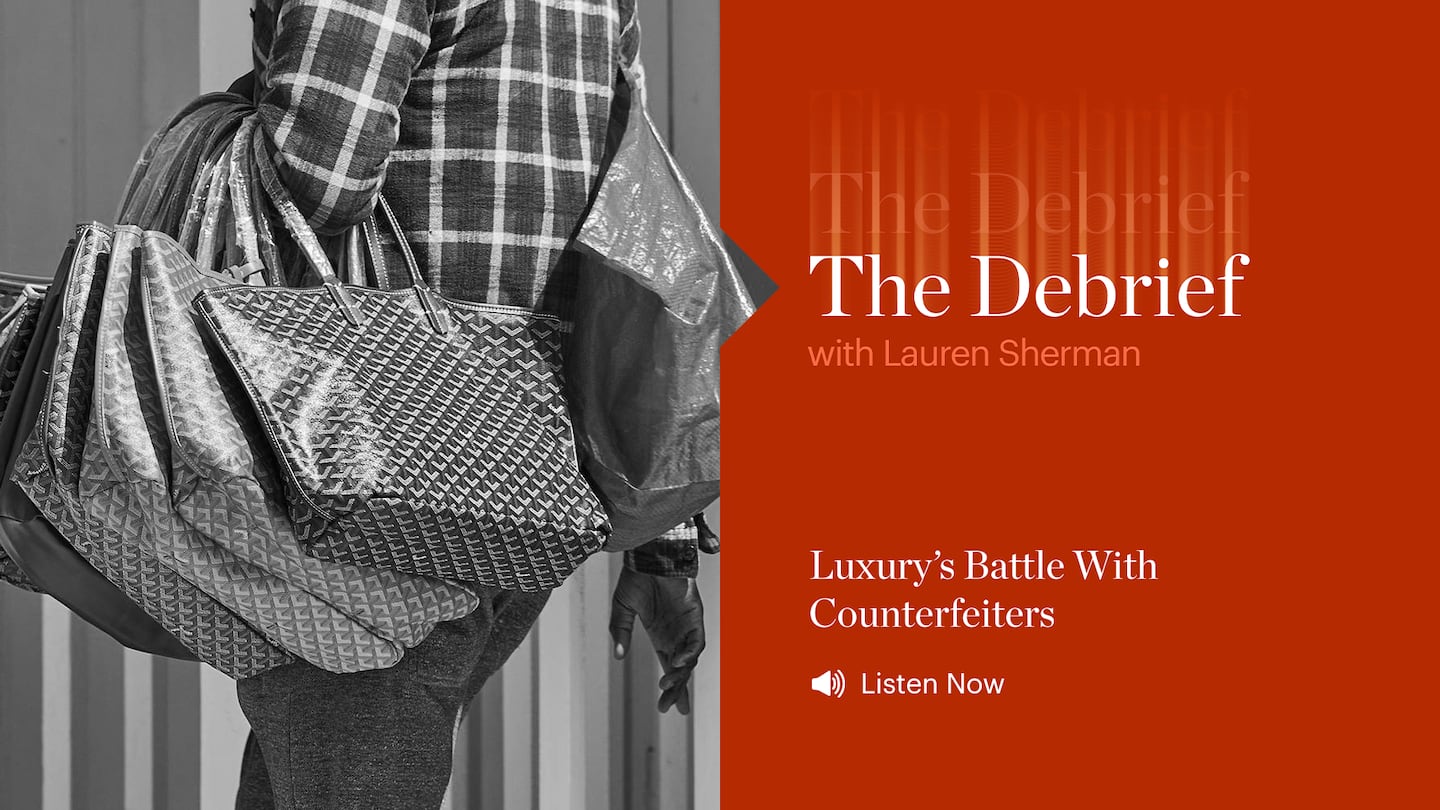
The Business of Fashion
Agenda-setting intelligence, analysis and advice for the global fashion community.

Agenda-setting intelligence, analysis and advice for the global fashion community.

Follow The Debrief wherever you listen to podcasts.
A growing number of young consumers are embracing counterfeit Prada loafers and Gucci bags, as the internet has made access to these dupes easier than ever. The value of the fake and pirated goods market has tripled since 2013 to be worth $3 trillion, according to the Organisation for Economic Co-operation and Development. That’s thanks to a number of factors. For one, websites like AliExpress and DHgate connect consumers directly with counterfeit manufacturers. It’s no longer a necessity for the dupe-curious shopper to visit the shady alleys of Canal Street. Meanwhile, the skyrocketing prices of luxury products are pushing aspirational shoppers away.
At the same time, the quality of luxury goods has diminished as much production has been outsourced to Asia, narrowing the gap between what’s real and what’s fake. Lastly, social media and constant seasonal trends have conditioned consumers to covet not only the “it” bag of the season but shoes, tank tops and more.
“I think there’s a sense of consumer alienation with luxury goods — where it’s like you’re super close to it, but at the same time it’s extremely inaccessible,” said retail correspondent Cathaleen Chen.
The rental platform saw its stock soar last week after predicting it would hit a key profitability metric this year. A new marketing push and more robust inventory are the key to unlocking elusive growth, CEO Jenn Hyman tells BoF.
Nordstrom, Tod’s and L’Occitane are all pushing for privatisation. Ultimately, their fate will not be determined by whether they are under the scrutiny of public investors.
The company is in talks with potential investors after filing for insolvency in Europe and closing its US stores. Insiders say efforts to restore the brand to its 1980s heyday clashed with its owners’ desire to quickly juice sales in order to attract a buyer.
The humble trainer, once the reserve of football fans, Britpop kids and the odd skateboarder, has become as ubiquitous as battered Converse All Stars in the 00s indie sleaze years.